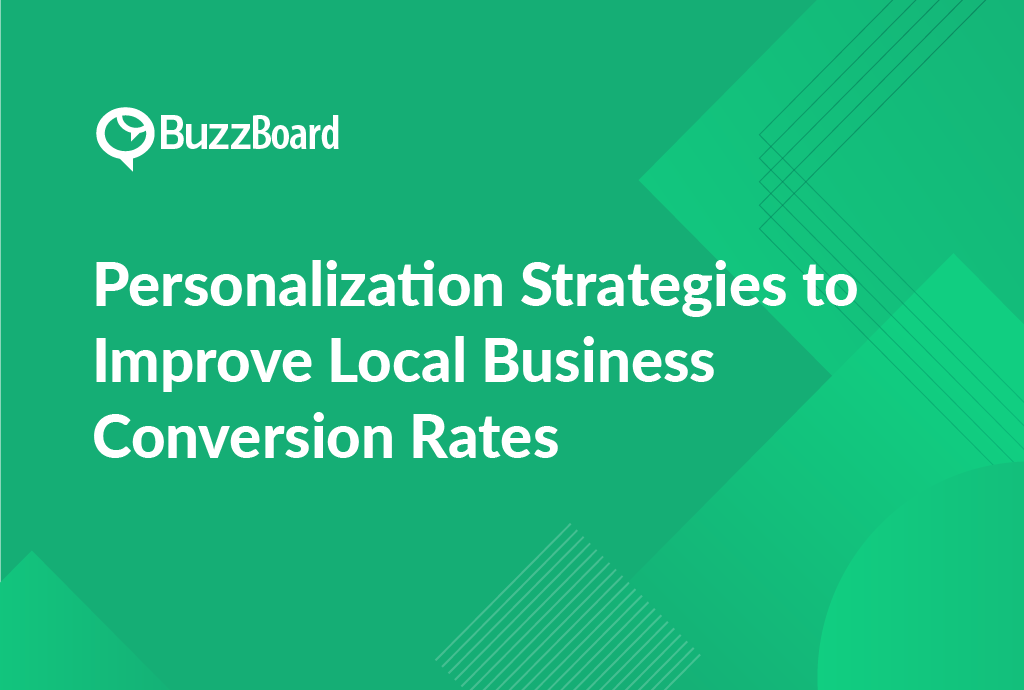Exploring the Significance of Personalization Strategies for Local Businesses
Incorporating personalization strategies into a local business’s marketing toolbox can be a pivotal factor in increasing conversion rates. By customizing messaging and offerings to align with specific customer needs, interests, and habits, businesses can enhance the user experience, leading to a potential uptick in sales.
Bridging the gap between the customer and the business is a significant step towards boosting sales. According to a study by Epsilon, brands that offer personalized experiences have a higher chance of enticing 80% of consumers to make a purchase. Thus, by adopting personalization strategies, local businesses can tailor their marketing efforts to specific segments, leading to elevated conversion rates.
Local businesses can deploy effective strategies such as dynamic content, email personalization, personalized recommendations, and behavioral triggers to boost conversion rates. For instance, the implementation of a personalized rewards program by Starbucks led to an astounding 50% increase in their revenue.
Local businesses could be at an advantage to leverage highly personalized marketing campaigns, thanks to their profound understanding of their customers and community. However, to optimize these strategies, businesses should invest in comprehensive customer research and use efficient data analysis tools.
Identifying Effective Personalization Strategies to Improve Conversion Rates
Sales personnel at digital marketing agencies, catering to small and local businesses, need to fathom diverse strategies for personalization to enhance conversion rates. Employing these potent strategies can improve user experience and uplift sales.
Personalization is far from a mere optional extra. It has become a necessity. With customers becoming increasingly demanding and discerning, personalizing user experience to meet individual needs can significantly boost conversion rates. By integrating personalization strategies into your digital marketing efforts, you can heighten sales and create customer loyalty.
Local businesses, vying for relevance in saturated markets, often undervalue the conversion enhancement power of personalization. A study by Epsilon suggests that 80% of consumers are more prone to purchasing when brands offer personalized experiences. Personalized marketing has transformed into an efficient strategy to elevate conversion rates by fulfilling people’s escalating expectations for relevance.
As a salesperson catering to local businesses, understanding your clients’ needs allows you to suggest marketing strategies resonant with their target audiences. This comprehension, when prudently utilized, can facilitate improved conversion rates for local businesses.
How User Experience Influences the Success of Personalization Strategies
Understanding how user experience influences the success of personalization strategies is crucial for salespeople at digital marketing agencies that cater to small and local businesses. These strategies can significantly improve the conversion rates of local businesses.
Personalization strategies create a unique experience for each user by tailoring content and offerings to their specific needs, behaviors, or preferences. But these strategies cannot achieve their desired effect without a well-designed user experience. A positive user experience creates a framework that allows for personal touches and makes these strategies effectively boost sales.
Think of it this way: A well-executed personalization strategy paired with a poorly designed user experience is similar to a beautifully wrapped gift that’s difficult to open. The original charm is eventually overshadowed by frustration. Hence, the focus should be on pairing personalization strategies with a thoughtfully designed user experience.
One efficient approach to achieve this balance is to constantly gather and analyze customer feedback. This consistent input helps refine not only the personalization aspects of your service but also the overall user experience. By doing this, businesses can enhance engagement, increase customer satisfaction, and, ultimately, boost sales.
Role of Personalization Strategies in Boosting Sales of Local Businesses
Personalization strategies are emerging as powerful tools for improving local business conversion rates. These methods are becoming crucial in enhancing user experience, a critical factor underlying the ability of a business to boost sales.
By implementing personalization strategies, local businesses can tailor their sales and marketing pitches to resonate with individual customers. This type of customized interaction can significantly enhance the customer’s shopping experience, encouraging them to make a purchasing decision that directly impacts conversion rates.
These strategies encompass a wide array of techniques. They can range from personalized email marketing and product suggestions to a customized website user interface, all designed for the consumer’s unique needs and preferences.
An effective personalization strategy comprehends and anticipates customer behavior to deliver unmatched experiences at the right time and place. It enhances the effectiveness of customer communication, helping establish long-lasting relationships that foster repeat business.
Various businesses, like Amazon.com, recognized for their dynamic personalized recommendations, have successfully implemented proven personalization strategies to boost sales. These recommendations account for a substantial portion of their revenue.
Benefits and Challenges of Implementing Personalization Strategies in Local Businesses
Implementing personalization strategies in local businesses is an increasingly recognized tool to boost sales and conversion rates. By customizing the user experience to meet individual customer’s needs and preferences, businesses can achieve greater customer engagement and satisfaction.
Nevertheless, this process can present challenges. Implementing these strategies may demand significant investment in time and resources to develop systems capable of collecting, analyzing, and utilizing customer data. Privacy concerns raised from this data collection can also pose a challenge.
To overcome these obstacles, efficient strategizing and effective strategy deployment are crucial. A prime example is A/B testing which allows businesses to compare two distinct personalization strategies to determine which is more effective in boosting conversion rates.
The primary objective is to enhance the user experience, leading to improved business conversion rates. Effective personalization strategies can also bolster customer loyalty and encourage repeat business, making them profitable in the long run.









